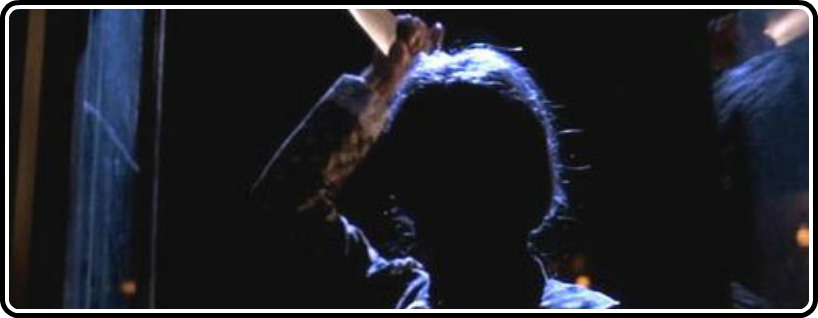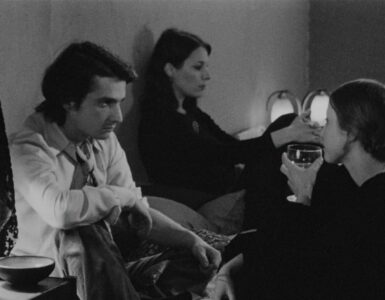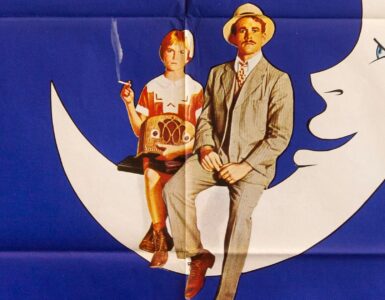Most sequels take what made the previous film(s) great/memorable, and elaborate upon those stylistic, narrative or intellectual ideas making strides either forward, into the realm of the story expansion, or backward, into the realm of cliché.
And then there are sequels like Psycho III.
The third in the oddly lengthy Psycho film franchise, this entry not only holds the title of having been helmed by none other than Norman Bates himself, Anthony Perkins, but it is also easily one of the oddest and singular entries in any horror franchise this side of say, the playful absurdity of a Wes Craven’s New Nightmare.
This 1986 film, directed by Perkins from a script from Charles Edward Pogue, is a decidedly different, far darker, take on the Psycho mythology than its previous entry, taking out its playful sense of narrative perversion and installing a genuine sense of deeply brooding sleaze. And it’s absolutely delicious.
We find Norman Bates once again free on the world, back in his mother’s house and ready to take on some new tenants. However, the film is a completely different type of slasher picture. Taking on ostensibly one of the first slasher films, Psycho, this time seeing it directly through the eyes of one Norman Bates, the film opens up like a speeding bullet. With a yet-to-be-seen woman screaming there is no God, we get a hint at the subversive slasher picture that will follow, as Norman himself deals directly with the events of the previous film. With Psycho II only, narratively, a handful of months in the rearview mirror, and a suicidal nun who looks suspiciously like Marion Crane in his house, Psycho III is yet another bit of proof that while the original film may be one of the greatest horror films ever, its sequels aren’t all that shabby either.
The greatest aspect of this film entirely comes from Anthony Perkins. Performance wise, he is, as usual when in this character, top notch. No one “gets” a character quite like Perkins “gets” Norman, startlingly so. From the first frame to the last, Perkins’ performance is a superb look at a man truly unhinged. Far more off kilter than much of the previous film (save for the final act), Perkins gets to let this character’s freak flag fly, and you feel as though he’s waited his entire career to get to this point in this character’s life. He’s joined by names like Diana Scarwid and a seething and sleazy Jeff Fahey, the latter of whom really adds a level of grime, seemingly turning this film into a distillation of the type of horror genre the first classic had ultimately inspired.
And then there is Perkins behind the camera. Not afraid to make things a tad more sordid than previous films, Perkins gets some interestingly atmospheric photography from Bruce Surtees (with enough grit and grime to fill any modern day slasher film) and one hell of a score from Carter Burwell all to add to what is one of the more interesting actor-turned-director efforts you’ve likely not seen. Perkins allows himself to give nods to previous entries in this franchise, but ultimately takes the franchise in a rather brazen and dark direction. Extremely perverse in many ways, the film oozes filth out of every pore, and it also proves to be a genuinely thrilling and ultimately terrifying entry into a franchise that isn’t short on frights. As interesting aesthetically as its predecessor is structurally, the film is simply a great horror film that not only owes a great debt to its original, but those films inspired by its own original.
And as with Psycho II, Scream Factory has released the film in a top notch new Blu-ray home video release. The transfer here is superb, allowing for both the photography and score to look as good as they have since they first hit theaters (the source material is admittedly a tad rough), and the release comes with a commentary with writer Pogue, interviews with actors Katt Shea, Brinke Stevens and the makeup artist Michael Westmore and a trailer. Easily a must own for any genre hound, this film is one of the most underrated horror sequels of its day, and a genuine thrill to sit through. Brisk and brooding, Perkins was a real talent, and his passion for this character and franchise turn this into something beyond enjoyable.






![Bergman Island (The Criterion Collection) [Blu-ray]](https://criterioncast.com/wp-content/uploads/2022/11/bergman-island-the-criterion-collection-blu-ray-400x496.jpg)
![This Is Not a Burial, It’s a Resurrection (The Criterion Collection) [Blu-ray]](https://criterioncast.com/wp-content/uploads/2022/11/this-is-not-a-burial-its-a-resurrection-the-criterion-collection-blu-ray-400x496.jpg)
![Lars von Trier's Europe Trilogy (The Criterion Collection) [The Element of Crime/Epidemic/Europa] [Blu-ray]](https://criterioncast.com/wp-content/uploads/2022/11/lars-von-triers-europe-trilogy-the-criterion-collection-the-element-of-400x496.jpg)
![Imitation of Life (The Criterion Collection) [Blu-ray]](https://criterioncast.com/wp-content/uploads/2022/11/imitation-of-life-the-criterion-collection-blu-ray-400x496.jpg)
![The Adventures of Baron Munchausen (The Criterion Collection) [4K UHD]](https://criterioncast.com/wp-content/uploads/2022/11/the-adventures-of-baron-munchausen-the-criterion-collection-4k-uhd-400x496.jpg)
![Cooley High [Criterion Collection] [Blu-ray] [1975]](https://criterioncast.com/wp-content/uploads/2022/11/cooley-high-criterion-collection-blu-ray-1975-400x496.jpg)